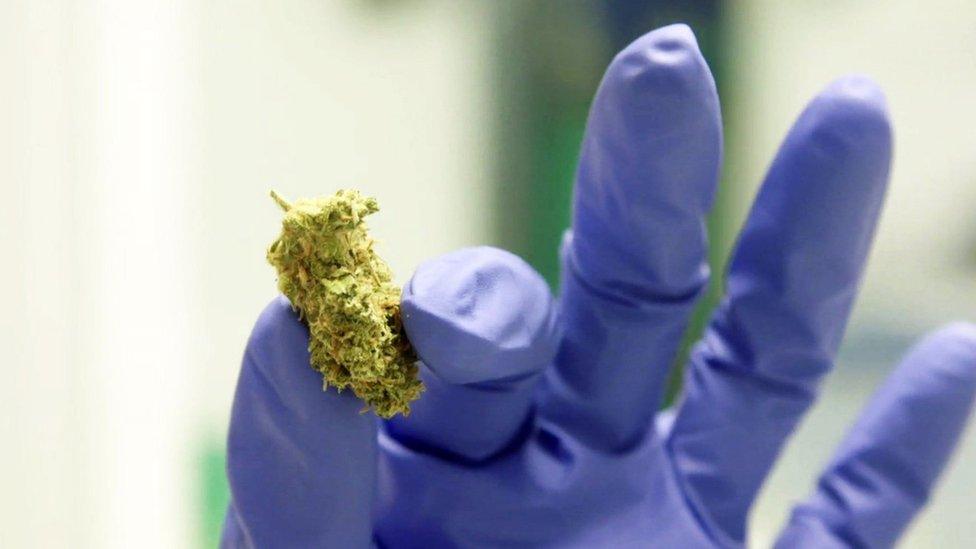Calls to legalise cannabis in Guernsey
- Published
Could Guernsey be the first place in the British Isles where you can grow and buy cannabis legally? Licensed use of medicinal cannabis was agreed in 2020 with licences for growing and production following in 2021 and 2022. But does that mean the island is ready to legalise what is currently a Class B drug?
The BBC has been speaking to those behind the proposals and supporters of legalisation.
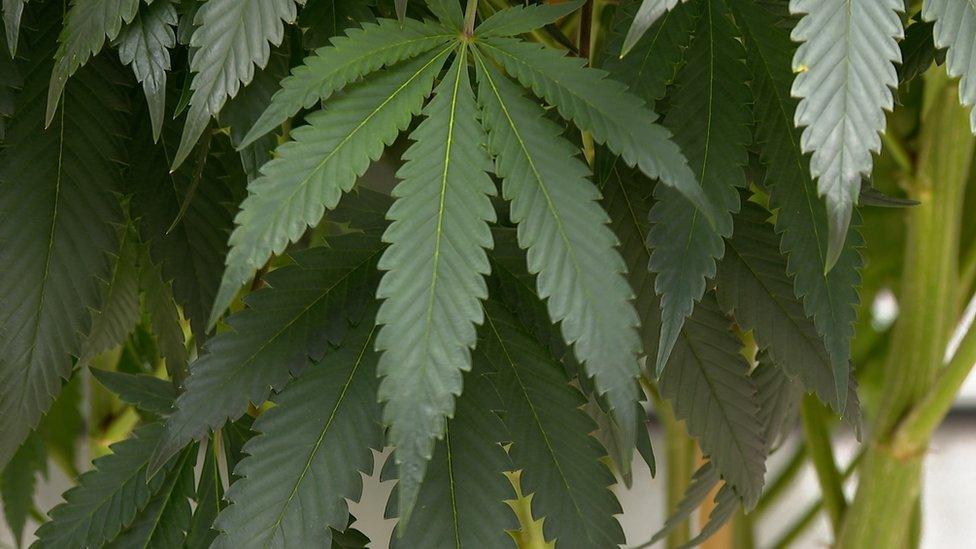
More than 800 islanders have given licences to use medicinal cannabis since the law changed in 2020
In June, politicians will be asked to vote on working towards legalising cannabis in this political term - it ends in 2025.
At the moment growing cannabis is against the law unless it is carried out under licence, while cannabis and cannabis resin are classified as Class B drugs.
The Committee for Health and Social Care (HSC) is suggesting that while legalisation is being worked on, Public Health looks at how regulation works elsewhere.
Vice-President Tina Bury said it could be the start of a move towards "a public health approach" to cannabis.
Cannabis is thought to be the most widely-used illegal drug in the UK.
A group of cross-party MPs who went on a fact-finding trip to Canada predict the UK will fully legalise cannabis use within five to ten years.
While the drug can lead to feelings of relaxation, happiness and sleepiness, experts have also warned of a risk of anxiety and paranoia, confusion and even hallucinations.
The HSC plans are set to be published next week and be debated as part of an update to the Government Work Plan.
If approved politicians will have committed to working to deliver it, although it could be deprioritised in future revisions of the plan.
Deputy Bury said the process was "a complex piece of work".
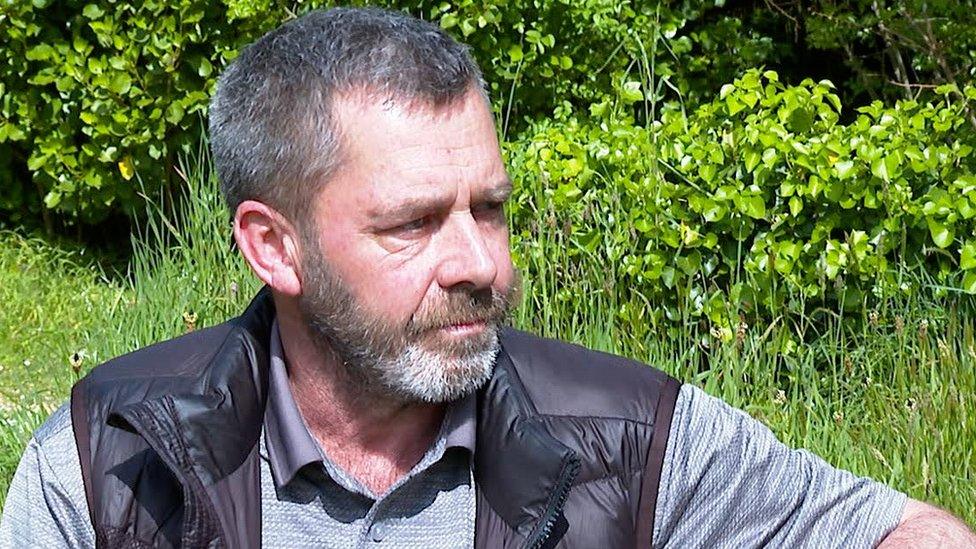
Deputy Marc Leadbeater has links to the industry and has long called for a change to the law
In the health committee there is broad support for this approach, which has been championed for years by Deputy Marc Leadbeater, who is also the director of a local cannabis cultivation firm.
He believes "this doesn't need to be the top priority for HSC in 2022" but it is a piece of work "we want to get progressed".
Members of the committee believe an approach similar to Amsterdam would not be appropriate.
In Amsterdam cannabis production is illegal but the selling of the drug has been decriminalised in a small number of coffee houses.
Deputy Leadbeater said something similar to the "dispensary model" which is run in parts of Canada would be appropriate for Guernsey.
He said "Canada has seen youth consumption of cannabis drop by half" since it decriminalised cannabis.
In Canada cannabis was legalised in 2018 - introduced by leader Justin Trudeau who said the change in the law would protect young Canadians and prevent criminals from reaping the profits of the black market.
Medical use 'life-changing'
Since medicinal cannabis was legalised in Guernsey in 2020, 829 people have been issued with 5,000 individual import licences over the last 18 months.
Henry Hulme started to use medical cannabis about a year ago to treat chronic back pain.
He is 6ft 11in (2.1m) tall and has always had problems with back pain.
Mr Hulme said medical cannabis "has been a game changer for me".
"I don't experience back pain anymore and it allows me to function on a day-to-day basis with relative ease.
"It has been life changing for me."
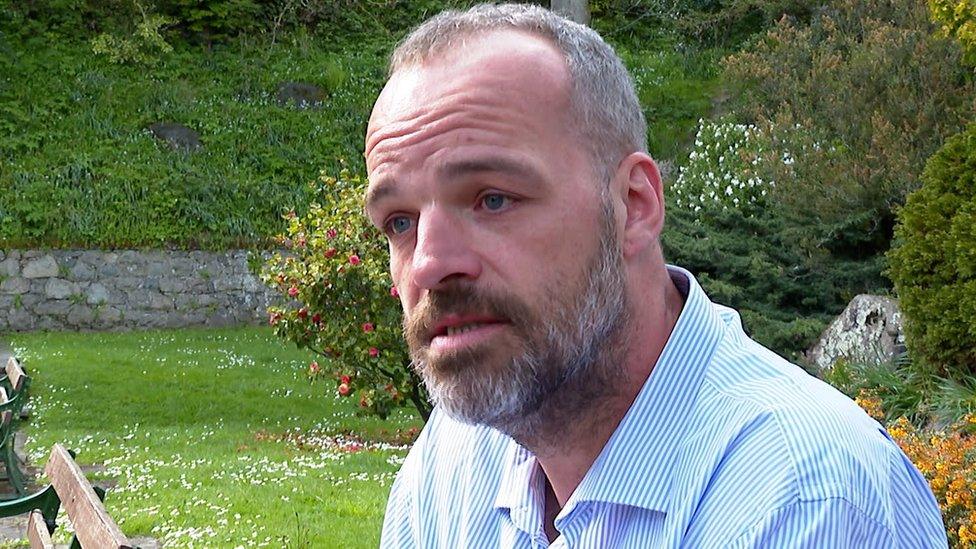
Henry Hulme said medicinal cannabis had been a "game changer" in dealing with his chronic back pain
Mr Hulme believes Guernsey should follow the lead of places like Spain and regulate the use of cannabis.
"I am massively in favour of a regulated marketplace in Guernsey. Hopefully grown locally.
"I don't want to see a recreational environment like Amsterdam. I don't want to see Guernsey become a tourism destination for cannabis."
Members of HSC said these changes would also mean "less money going to the black market".
Gazz Barbe uses medical cannabis at the moment and in his youth was involved in the black market.
He believes a regulated environment would have health benefits and mean less money for "violent criminals".
"At the moment the supply is in the control of criminal gangs and because of that violence and crime is inevitable.
"If it was legal and open, that issue would calm down. You'd reduce the money going to criminal gangs."
Jon Bisson runs music venue St James and has organised festivals across the world and lived in jurisdictions with different approaches to cannabis.
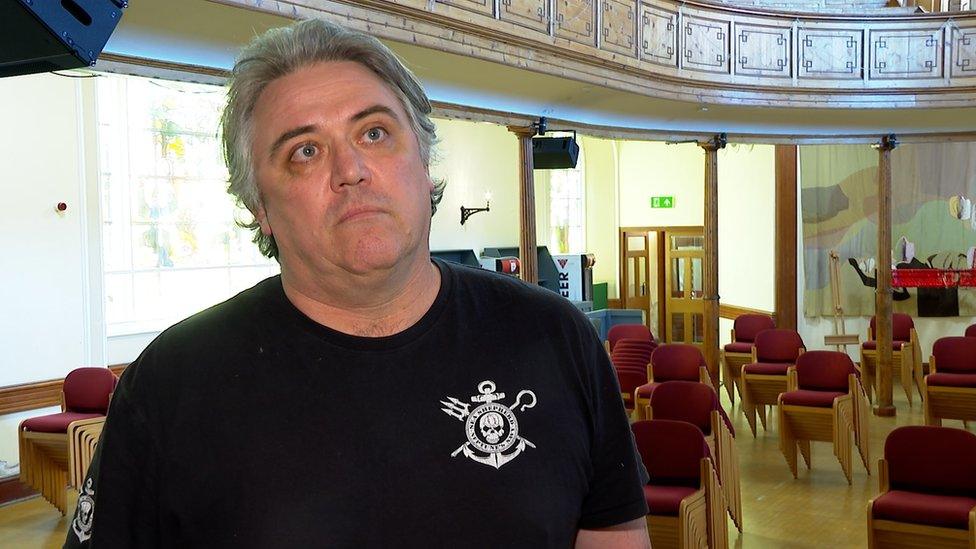
Jon Bisson urged the States to look at the systems that work elsewhere
He believes there will be economic and health benefits to a regulated environment in Guernsey.
Mr Bisson said we "aren't trying to reinvent the wheel here" and we can implement "regimes from other places which have seen successes".
"At St James we are starting to see more medical cannabis users coming to our events. We follow all the protocols from the police, but it does put us in an awkward position."
"It was always going to be tough going from where we were to where we are when it comes to cannabis.
"I don't want to see drug tourism. But something that allows small personal use would be great. However, dealers should be clamped down on like in Australia and Portugal."
The President of Home Affairs Committee Rob Prow and the President of Policy and Resources Peter Ferbrache declined to comment until they'd seen the proposals.

Follow BBC Guernsey on Twitter, external and Facebook, external. Send your story ideas to channel.islands@bbc.co.uk, external.
- Published22 April 2022
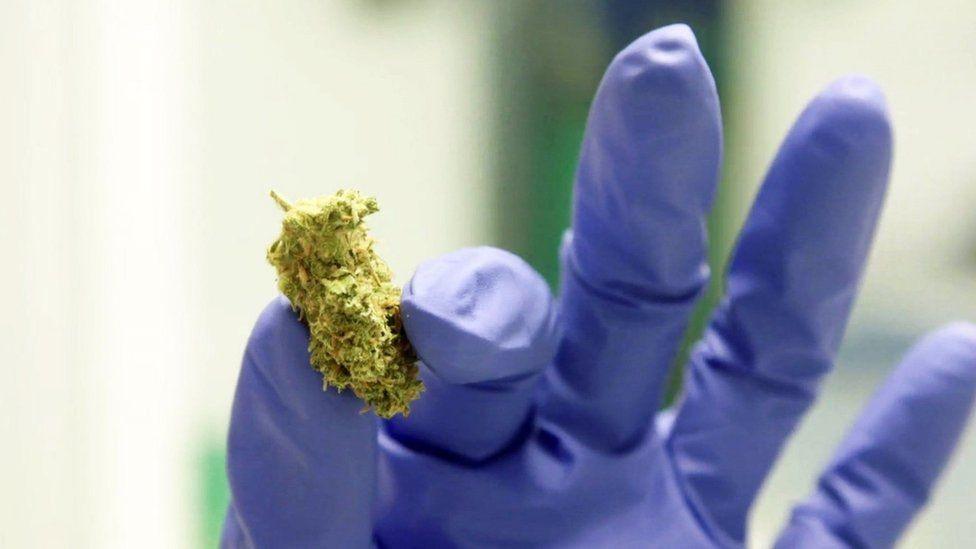
- Published2 February 2022
- Published29 November 2021
- Published23 November 2021
- Published2 November 2021
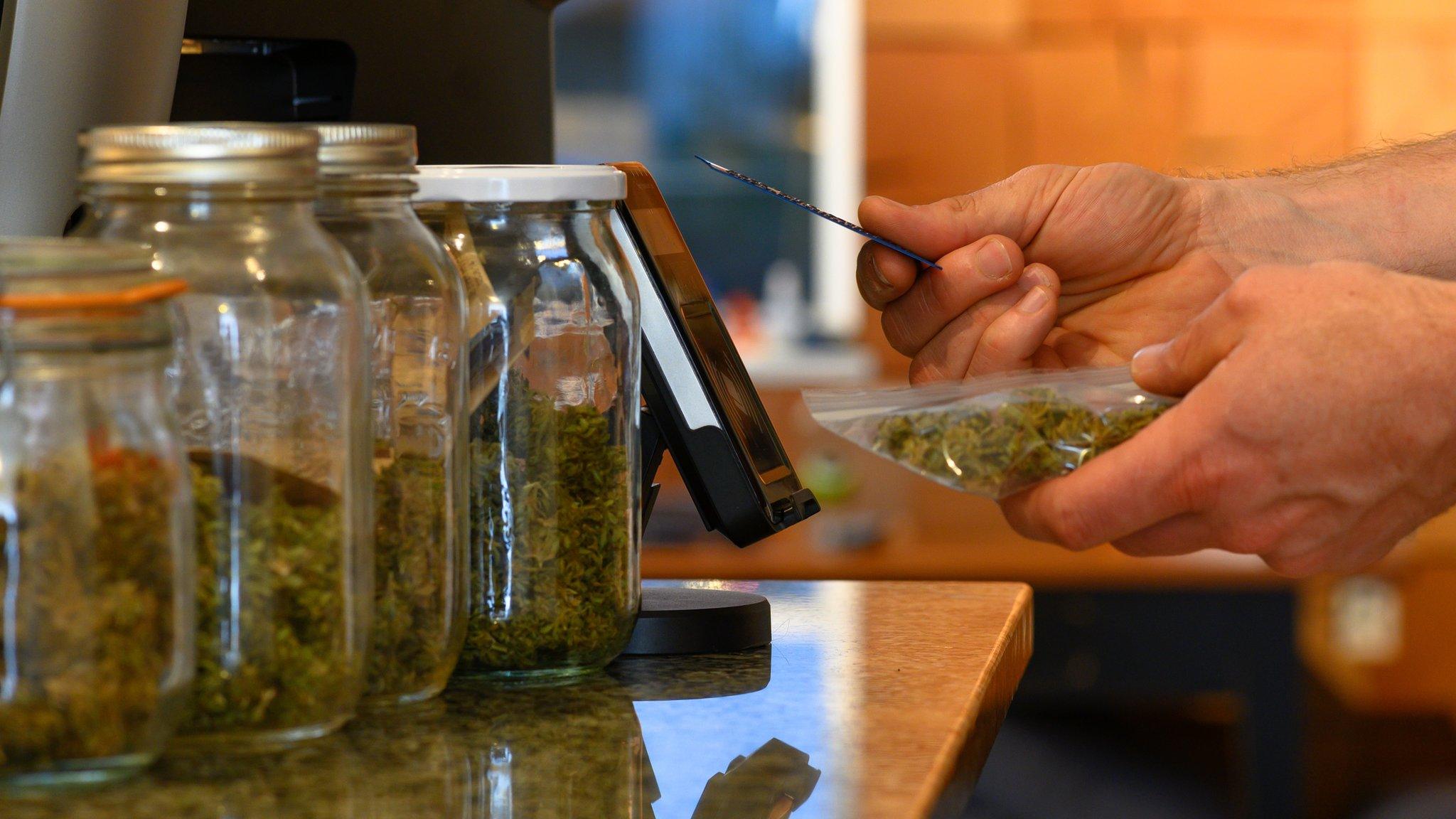
- Published25 July 2021
